COMMUNITY
The Galapagos Science Center (GSC) is an organization that, in addition to its core mission of generating knowledge through research, recognizes the importance of responding to the needs of the community. As such, engagement with the community, collaboration with local, national, and international institutions, and the responsibility of bringing science into the homes of the Galápagos residents are fundamental parts of its commitments. The GSC promotes the sustainable development of the islands by providing technical advice to institutions such as the Galapagos National Park Directorate, the Autonomous Municipal Government of San Cristóbal, the Ministry of Health, and the Governing Council of Galápagos, enabling them to make informed decisions when managing public policy. Additionally, the GSC shares the research it conducts with the local population through various activities in its community development program, “Connecting with Nature.”
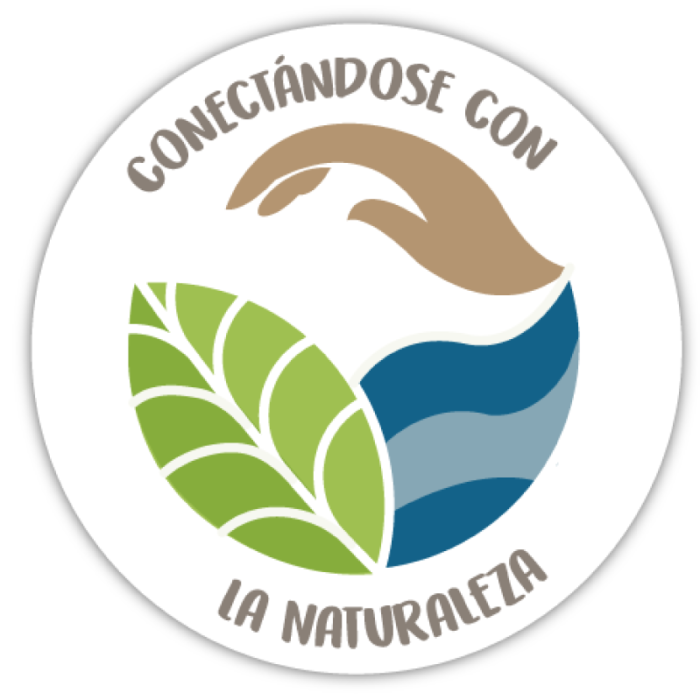
Community Development Program "Connecting with Nature"
The community development program “Connecting with Nature” began its activities in 2019, thanks to the partnership between the Galapagos Science Center and the Galapagos Conservation Trust. Its purpose is to promote recreational and educational activities with community participation, in order to contribute to the revaluation of the islands’ natural resources and to strengthen the sense of responsibility for their conservation.
The activities have been designed based on the well-known “Theory of Change,” which holds that conservation attitudes and behaviors can be gradually promoted through various interventions at different life stages, from childhood to adulthood. In this way, the program seeks to raise awareness, engage, motivate action, and empower children, youth, and adults around the socio-environmental dynamics taking place on the islands, taking into account sustainable development, climate change, the strengthening of identity, and gender equity as the main cross-cutting themes.
In its first six phases, the CWNP has reached over 9,100 members of the community.
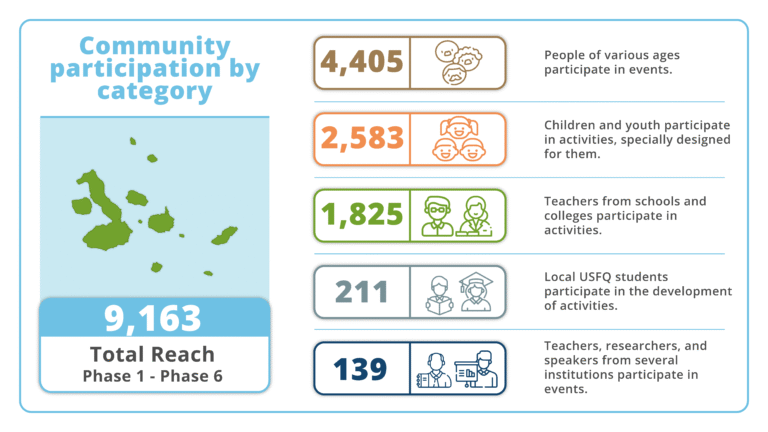

How We Do It

To Raise Awareness
Through reading comprehension activities, boys and girls learn about the importance of ecosystem conservation and the dangers faced by the species that inhabit them. The sessions include reading science-based stories, reflection and critical thinking exercises, questions, drawings, and games, and are endorsed by the Ministry of Education. This is one of the activities with the broadest reach, as it has been carried out in schools across all populated islands of the archipelago and in a coastal area of mainland Ecuador.
The “Virtual Sessions” and “Teacher Mentorships” have enabled a significant number of educators to learn the methodologies and resources used, allowing them to replicate the experience with their students.
The stories used include tales of iconic Galapagos species:
“Marti, the Hammerhead Shark”, “Tessa, the Giant Tortoise”, “Alberto, the Waved Albatross”, and “Loberto and Zally, the Galapagos Sea Lions.”


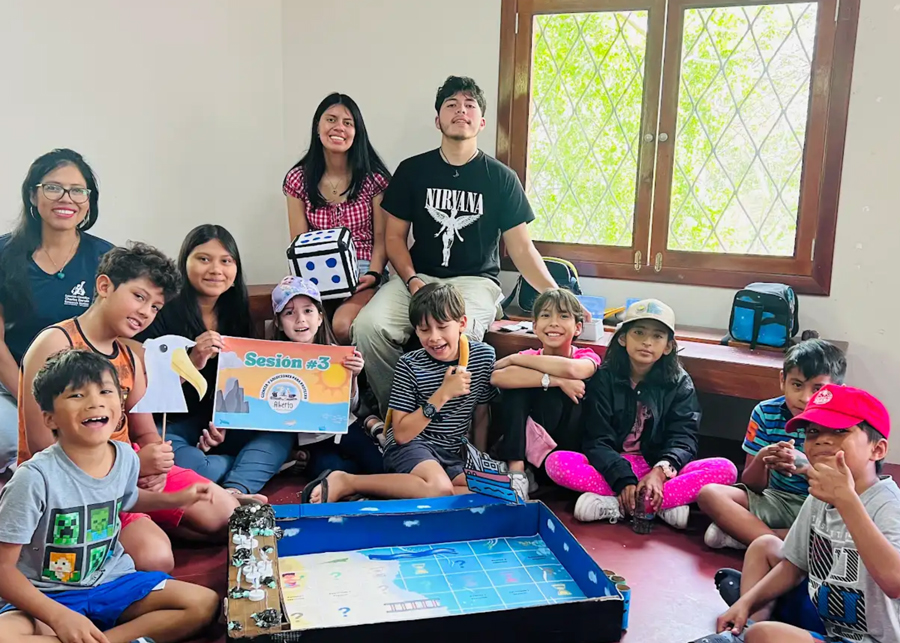
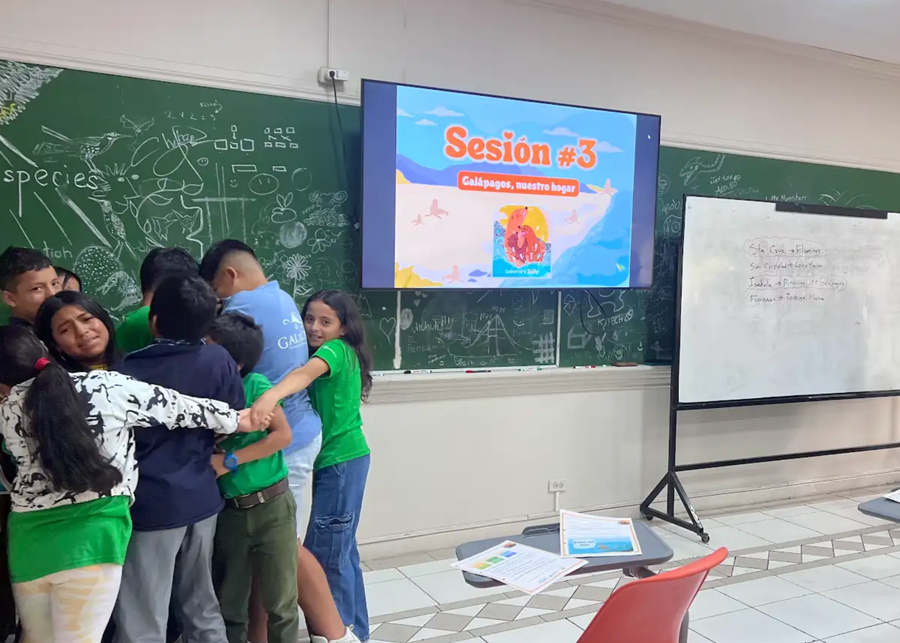
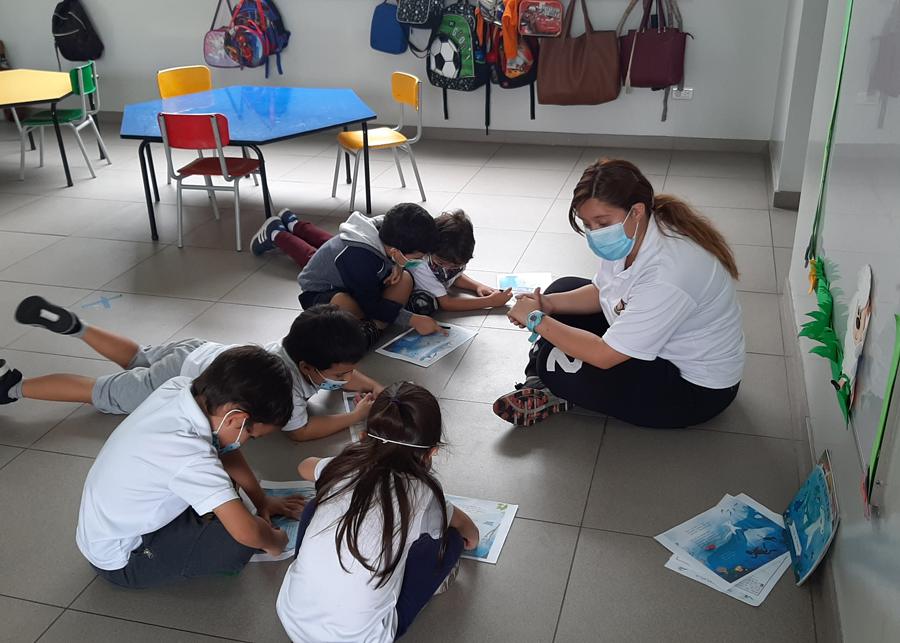
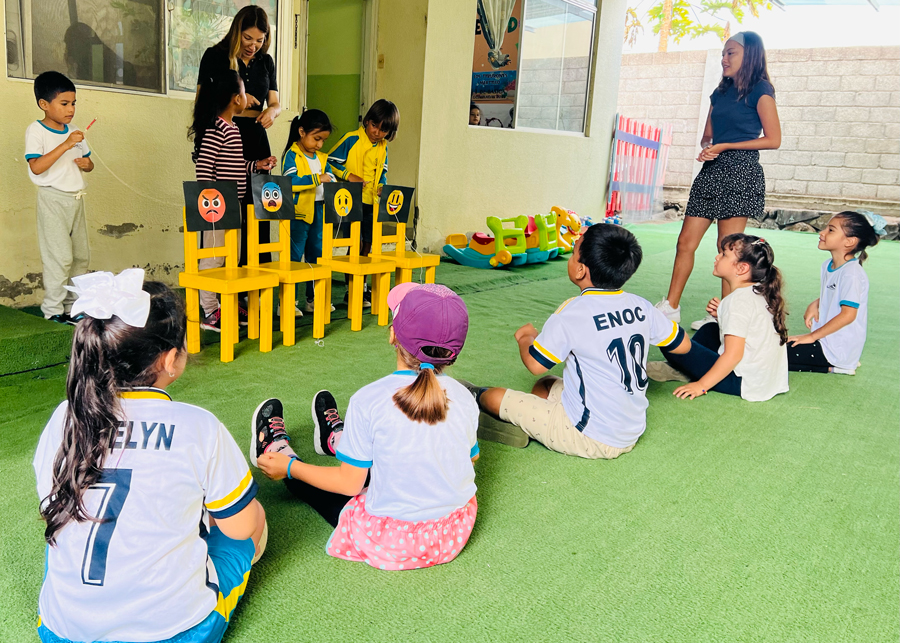
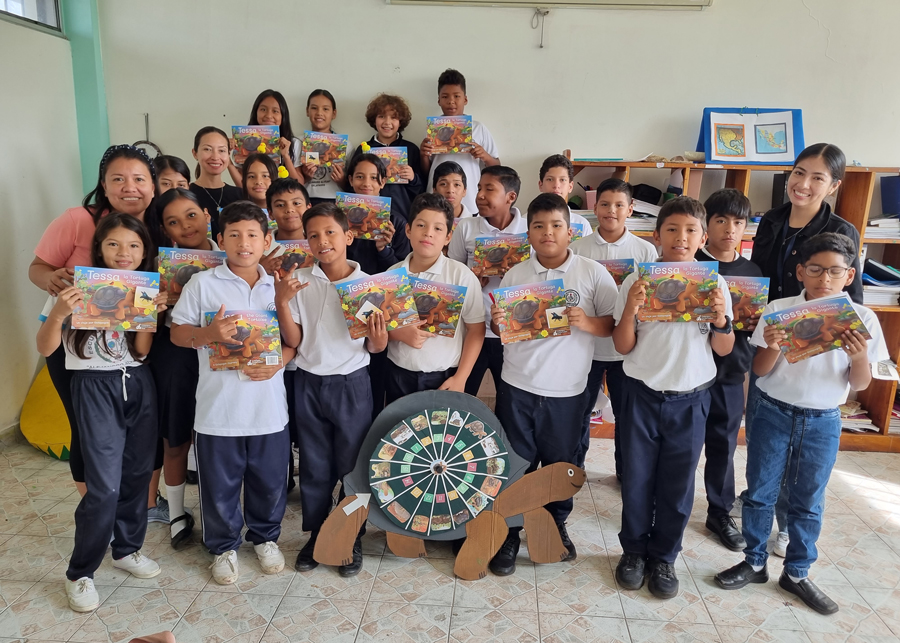
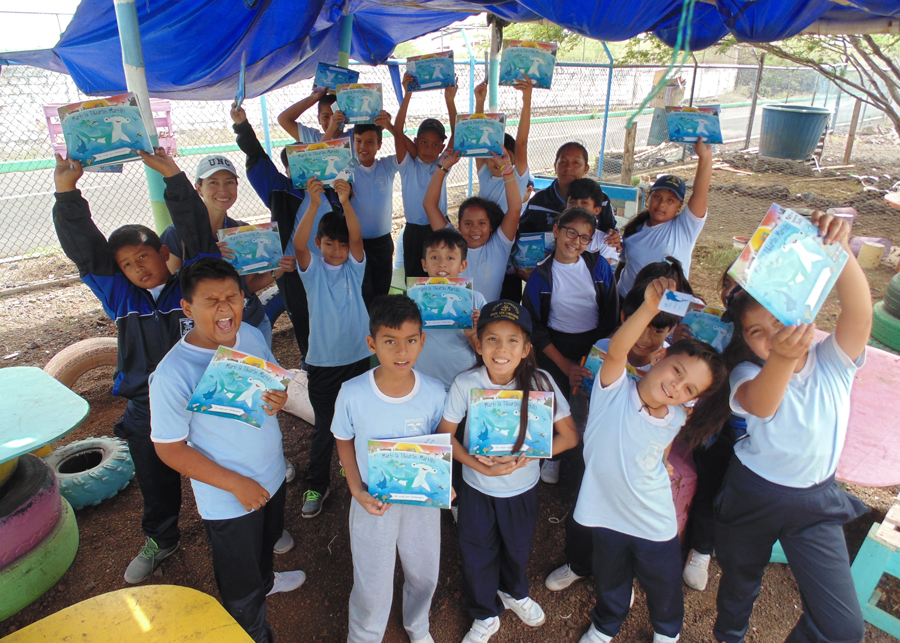
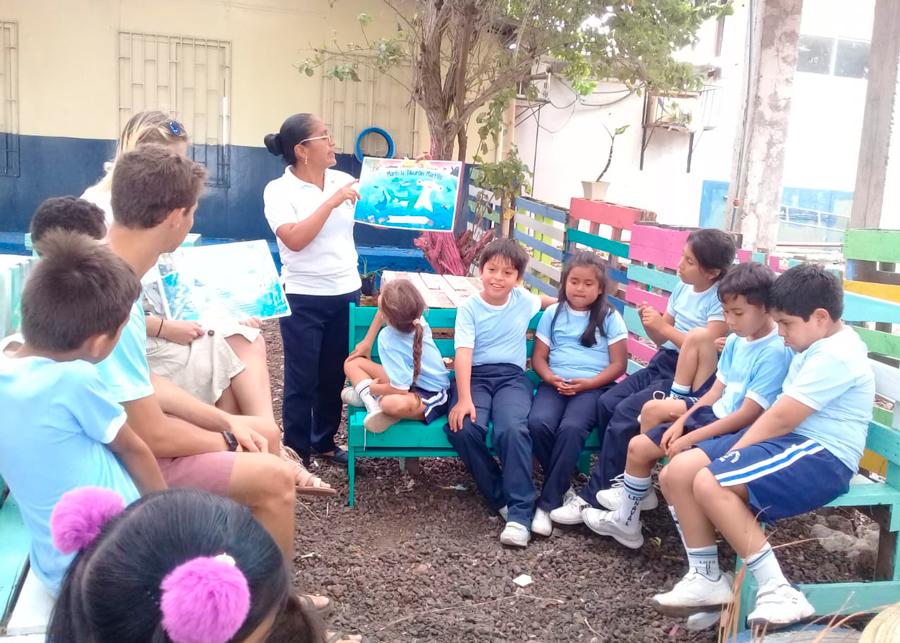
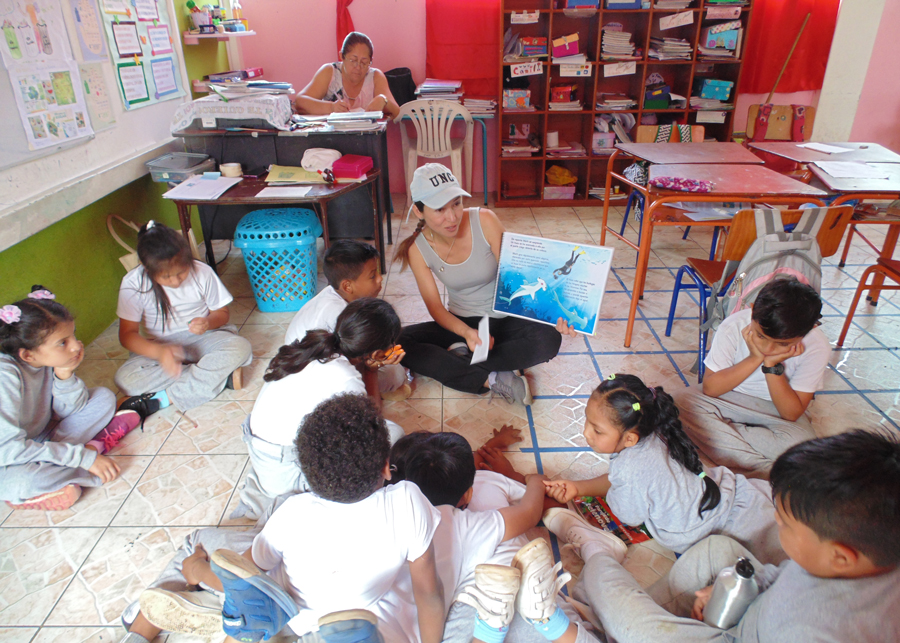

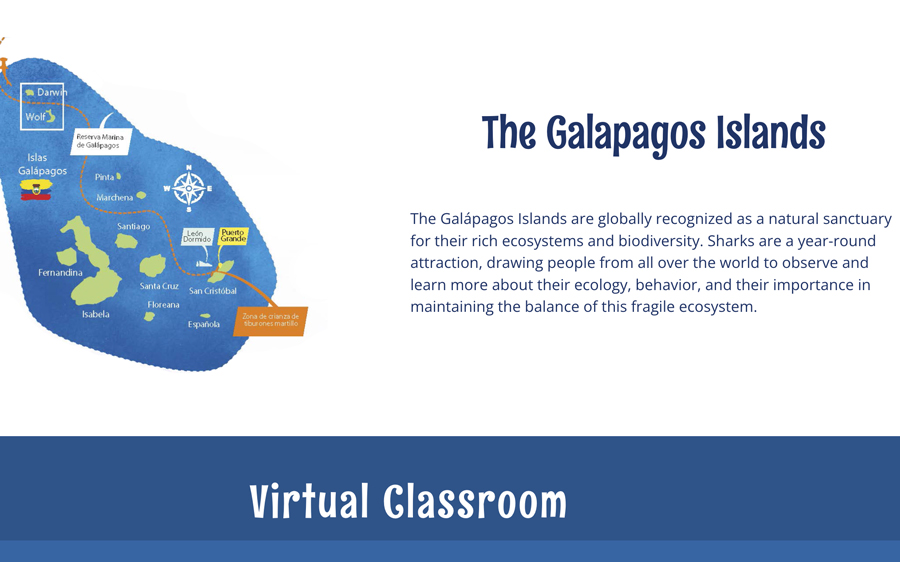
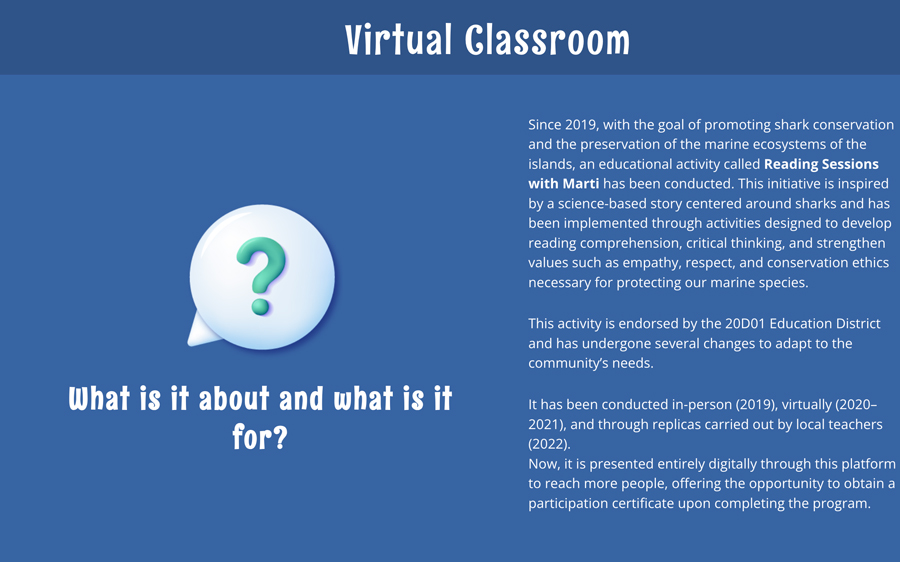

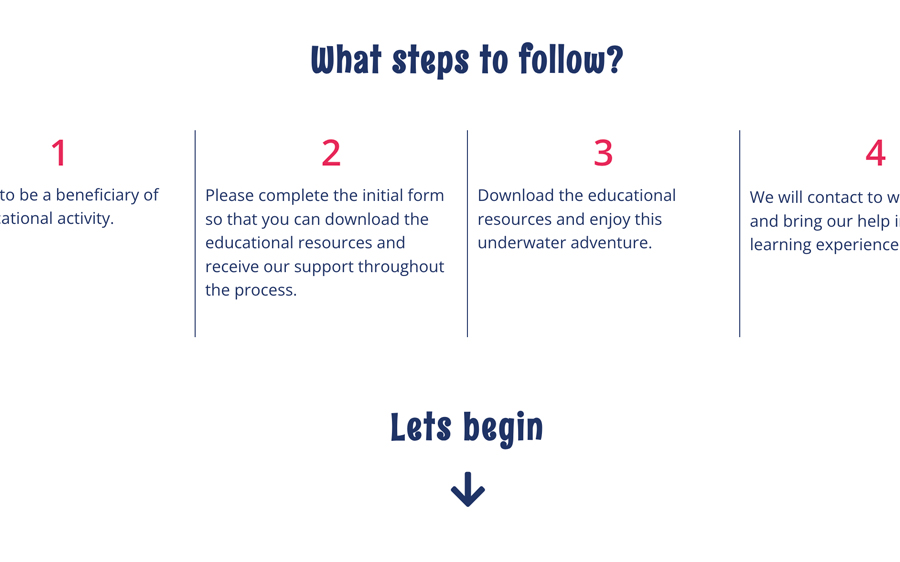
To access the reading sessions anytime and from anywhere, it is now possible to use the resources available in the Virtual Classroom. These stories not only entertain young children but also evoke emotions and strengthen empathy toward animals. With a focus on empowerment and autonomy, the Virtual Classroom allows families and schools to join efforts to foster a love of reading, reinforce values of coexistence, and promote conservation in an ecosystem as fragile as that of the Galápagos.
To Engage
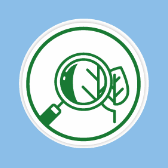
“Friends of Science” Club
Through a multi-session program, children and youth awaken their curiosity and learn about the tools and methodologies used by scientists in both fieldwork and laboratory research. In this way, the program fosters interest in science and conservation from an early age, providing opportunities to apply the knowledge they gain and increasing their enthusiasm for learning about the life behind scientific research.
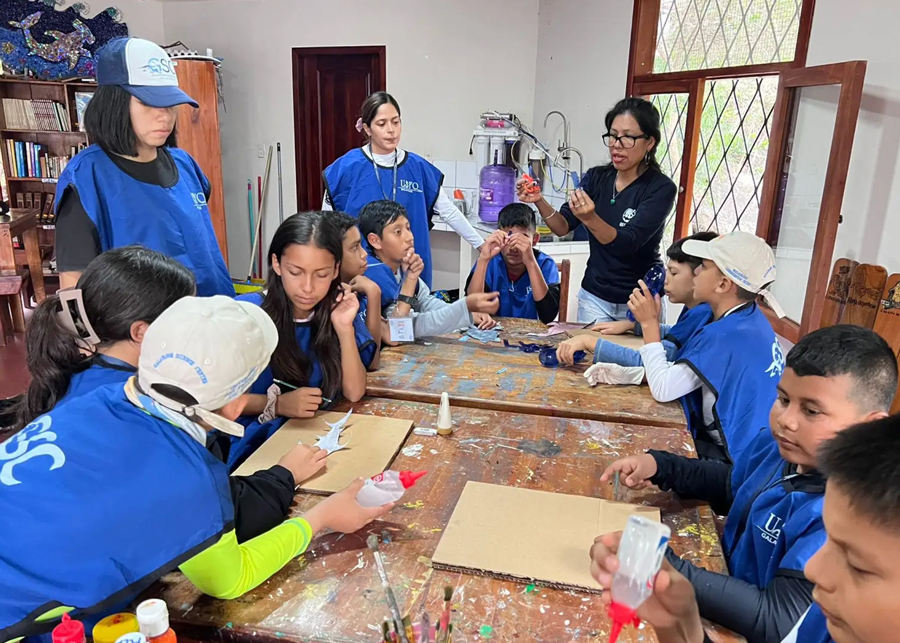
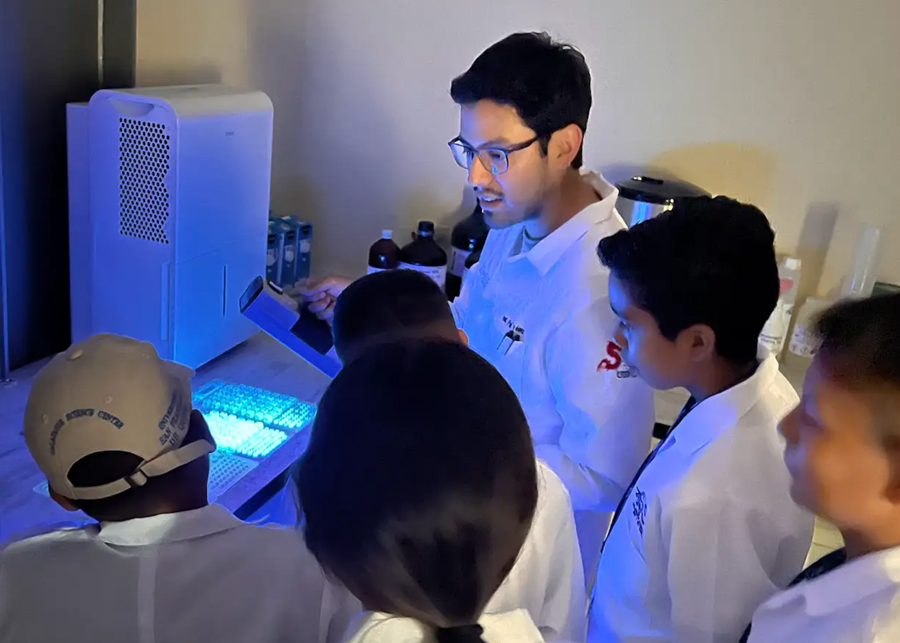
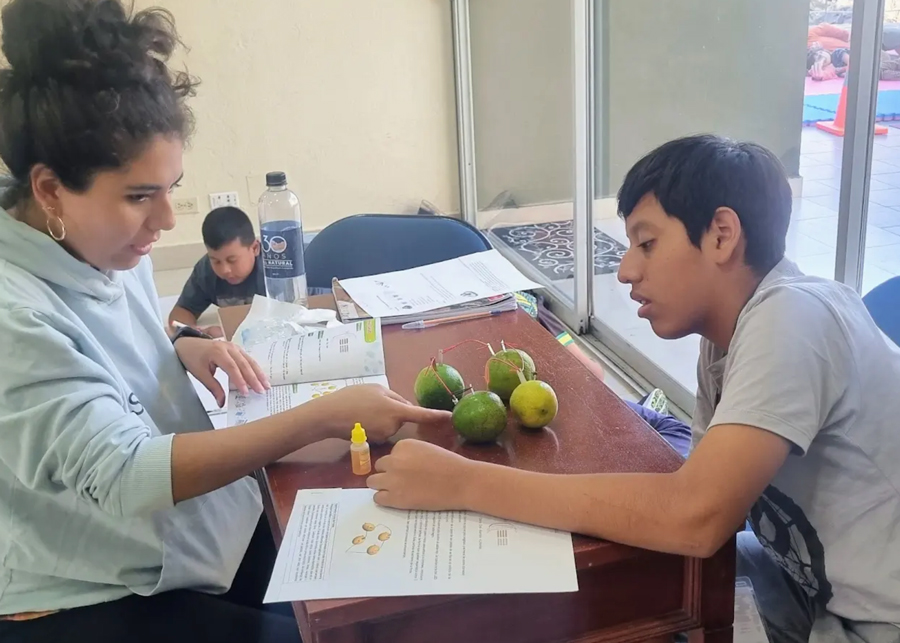
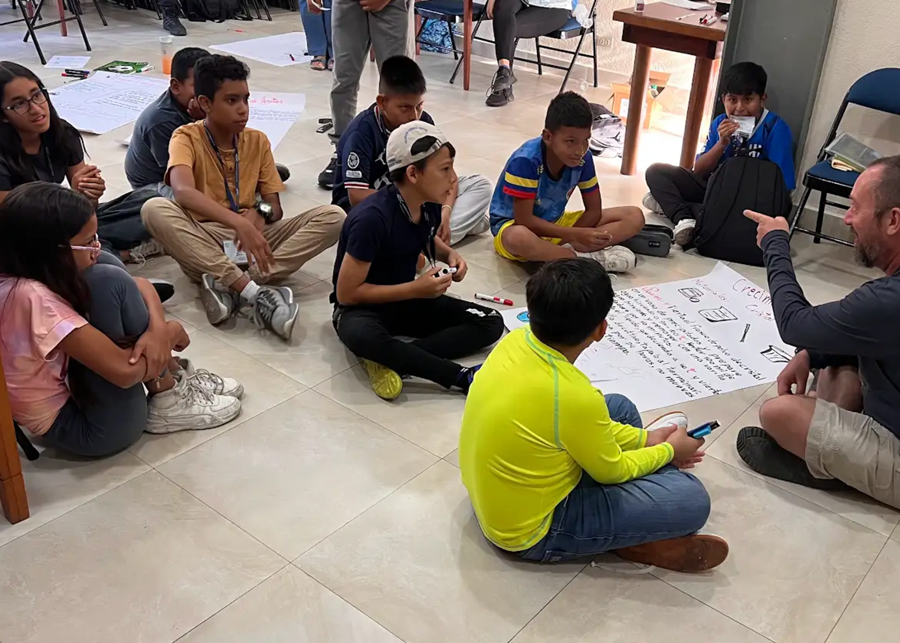
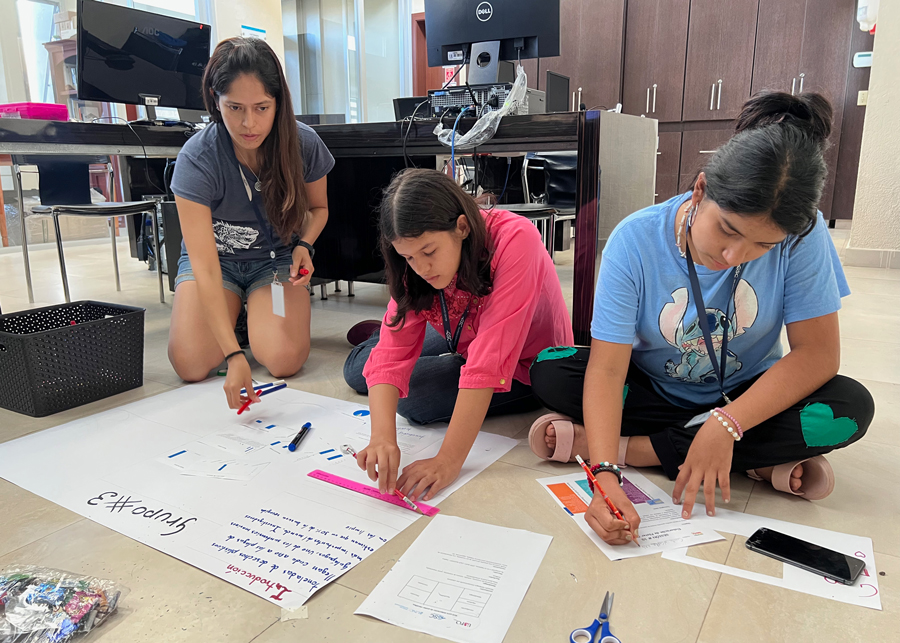
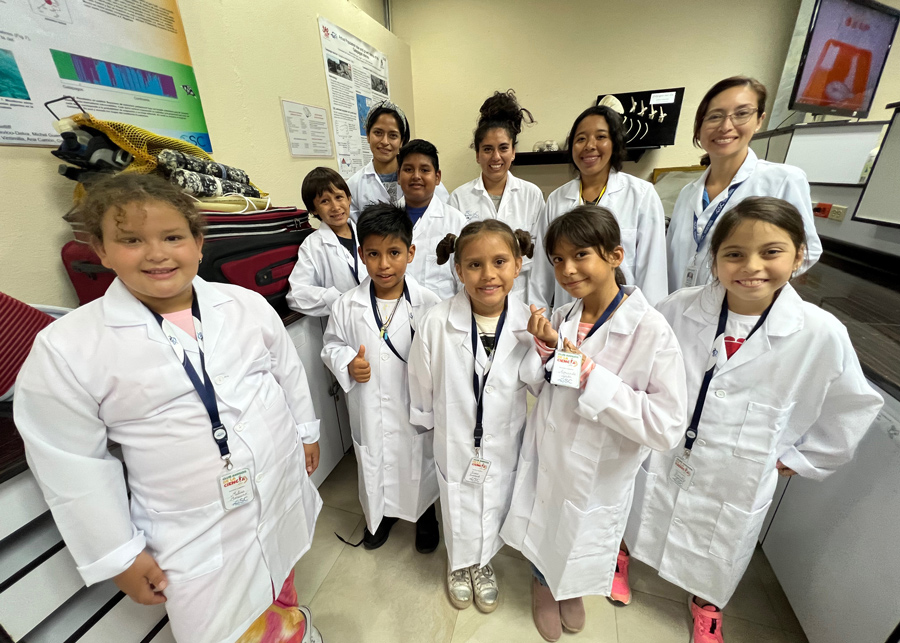
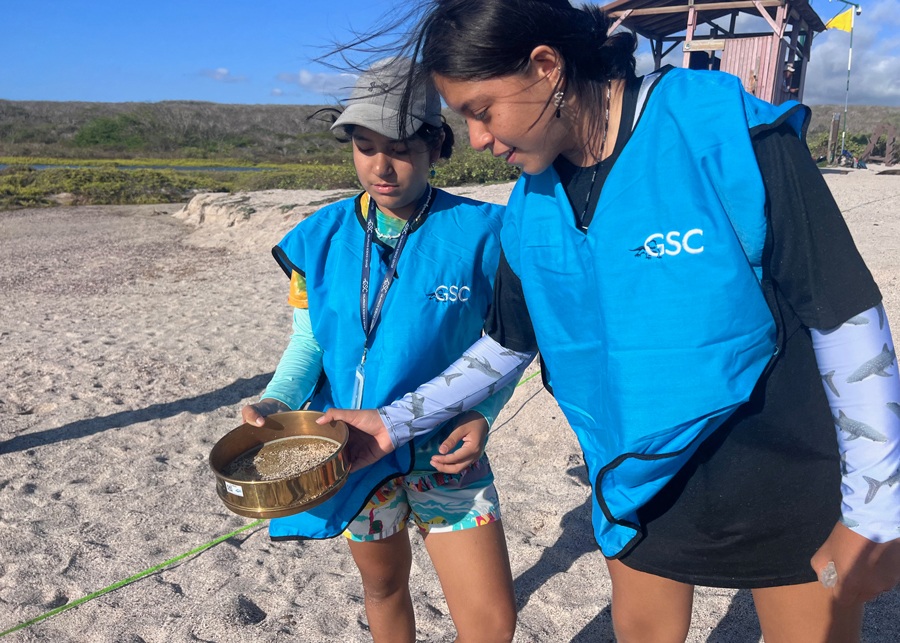
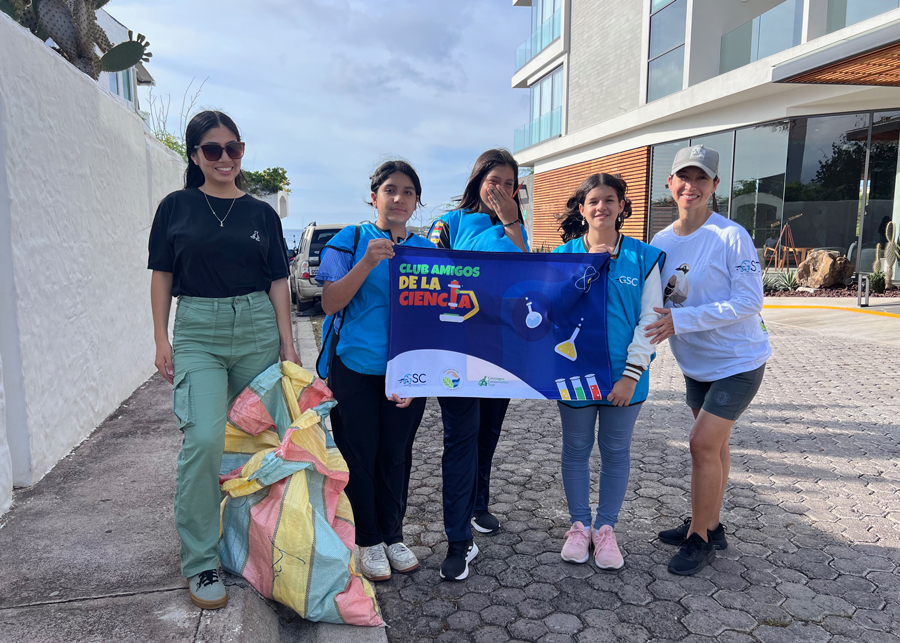
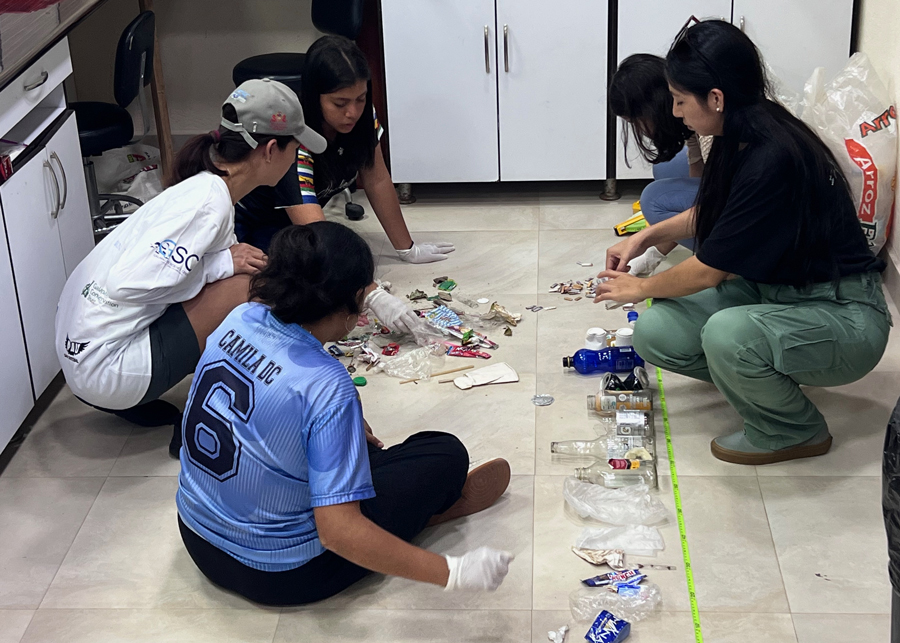
To Inspire Action
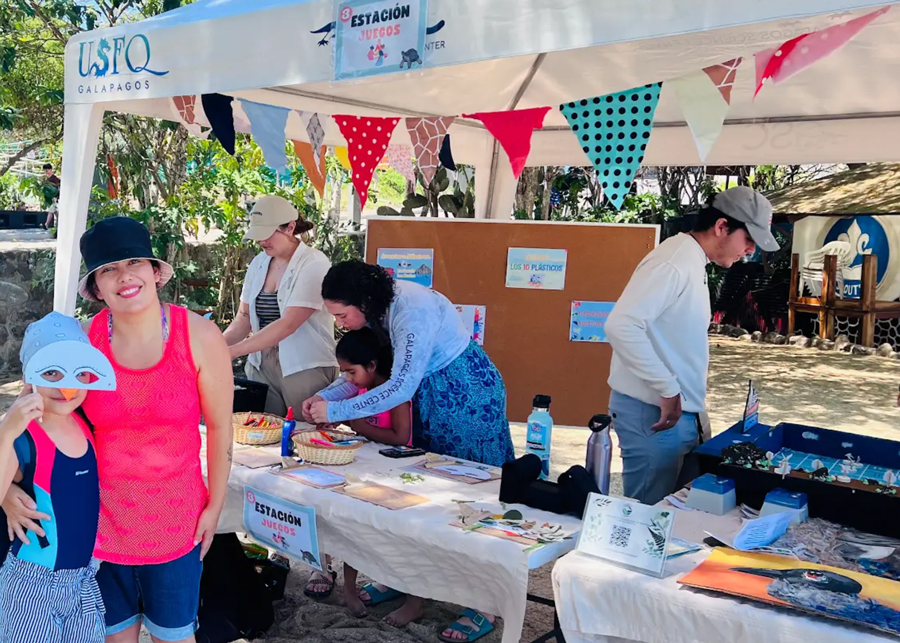
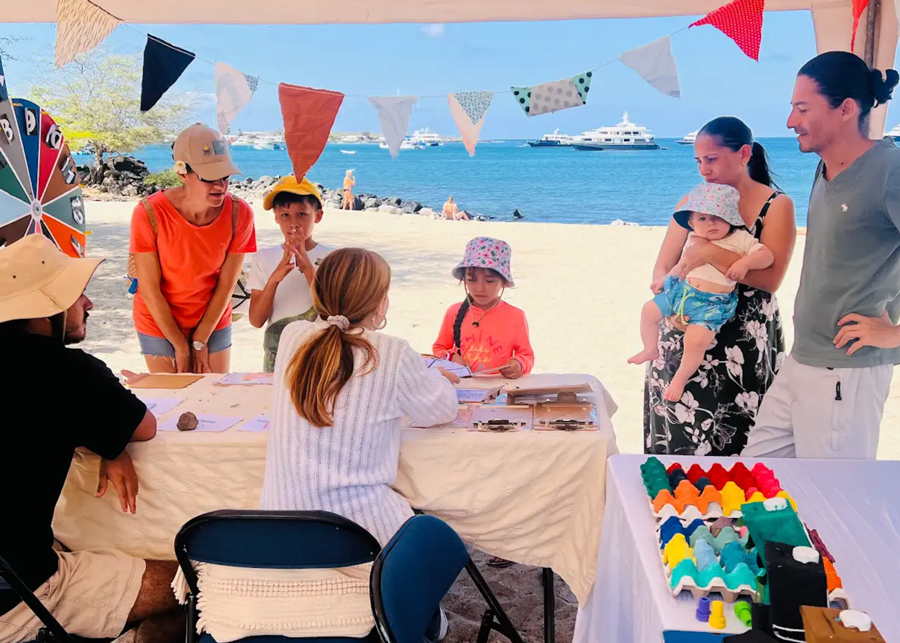

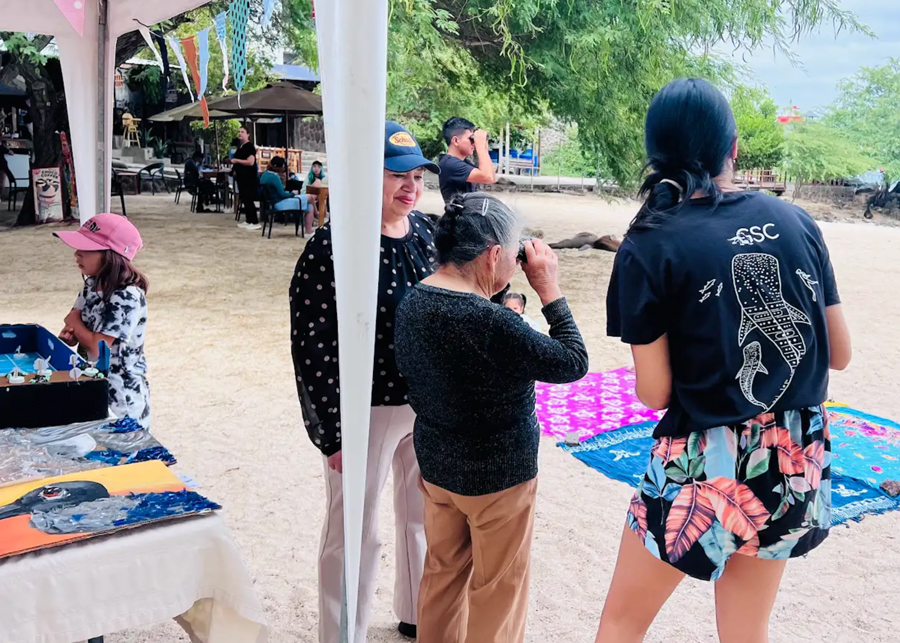

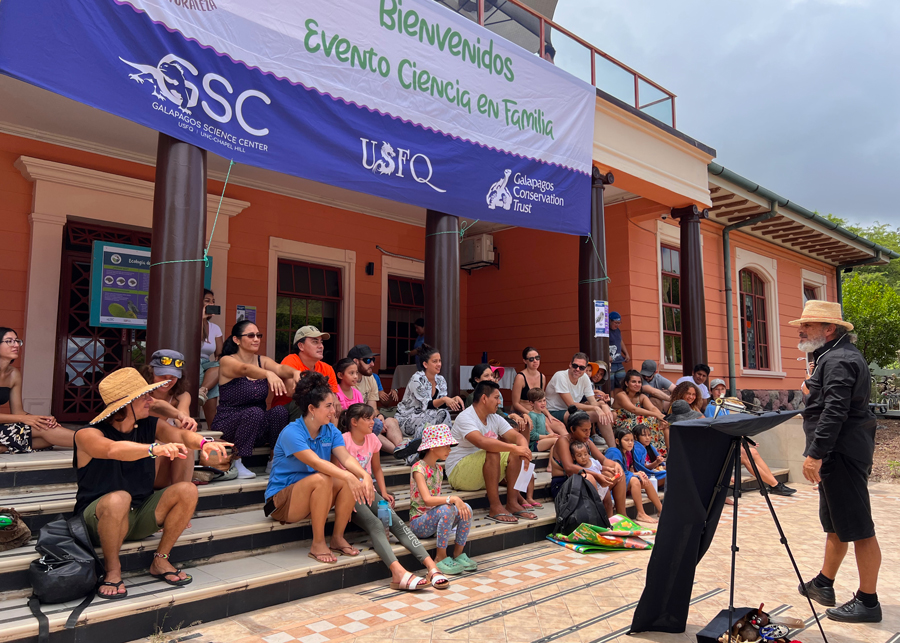

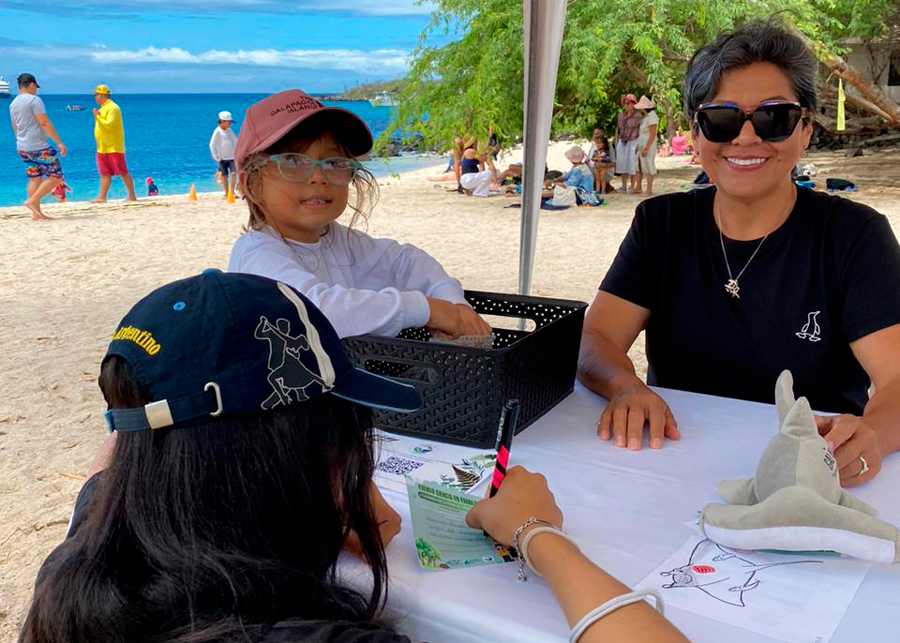
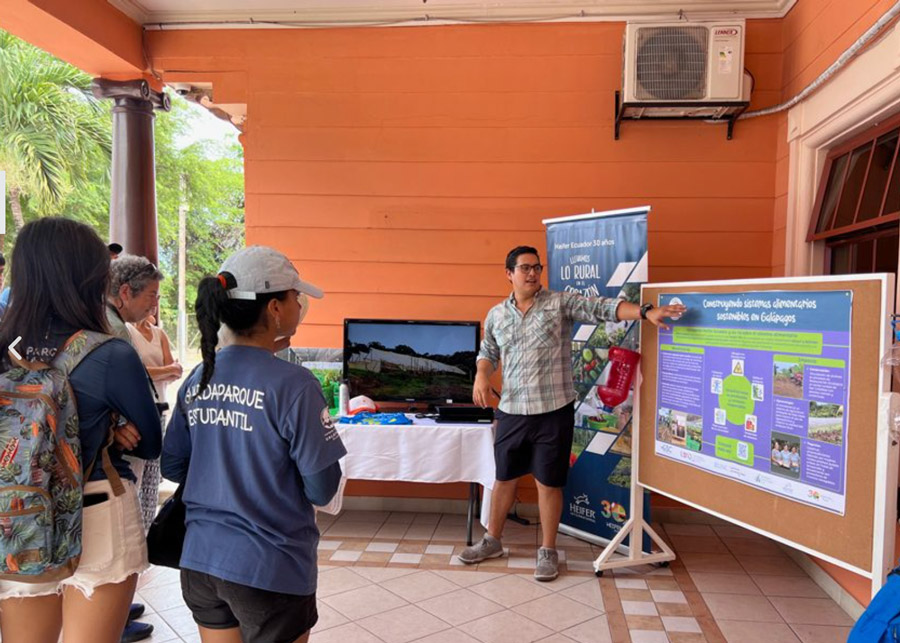

Family Science Events
In a dynamic space and through simple language, community members learn about topics related to the scientific research being carried out at the GSC. This activity is developed in a station format, where participants engage in playful activities that include challenges, exhibitions, games, and commitments, with the aim of offering the community an opportunity for learning and healthy recreation. Each event involves the participation of GSC researchers, students from USFQ Galápagos, and members of other local institutions as exhibitors, and is held in public spaces such as parks, beaches, or plazas.
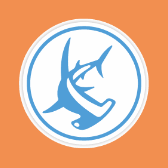
Annual Shark Day Event
With over 10 years of experience, this emblematic annual event offers the community educational experiences focused on learning about topics related to marine species, with special attention given to the sharks that inhabit Galápagos. Through a full day event that takes place every July, including several stalls that combine knowledge and fun, empathy for these species is encouraged. Visitors use a “passport” that is marked with funstamps at each stall.
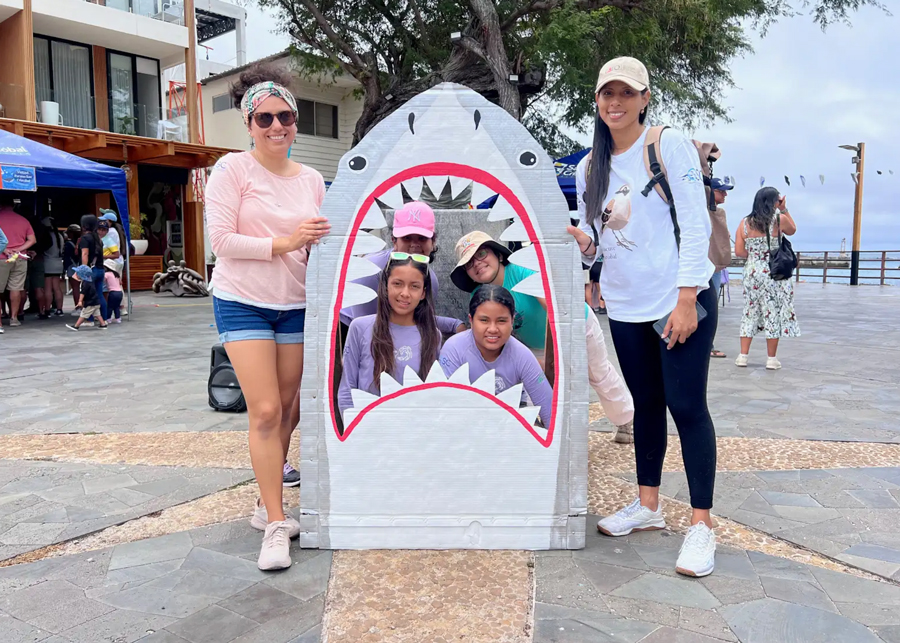
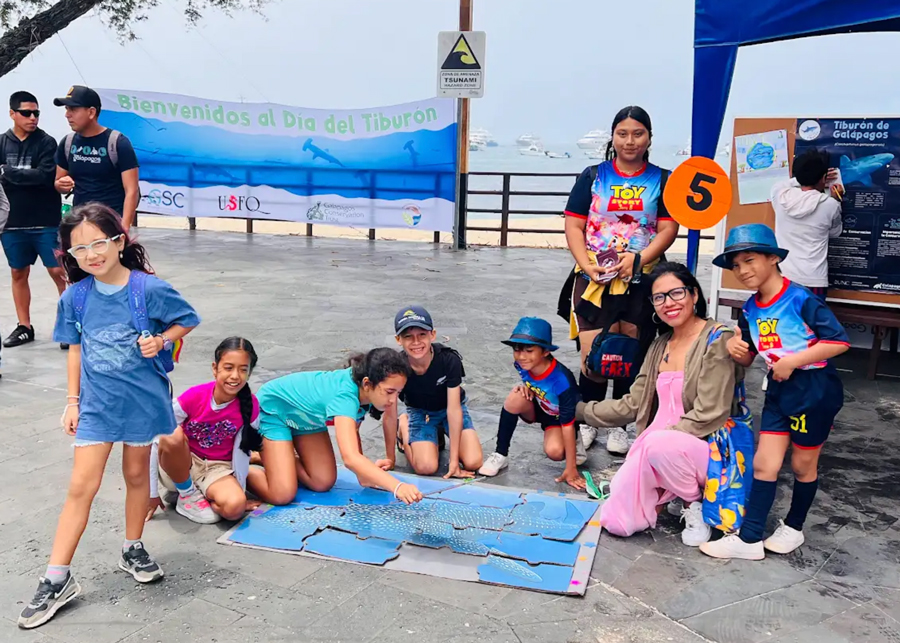
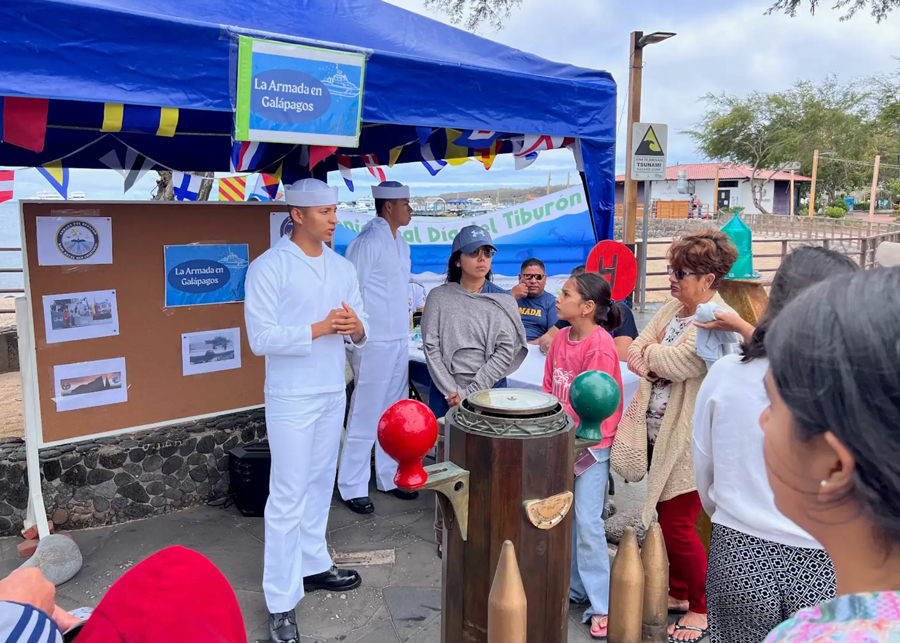
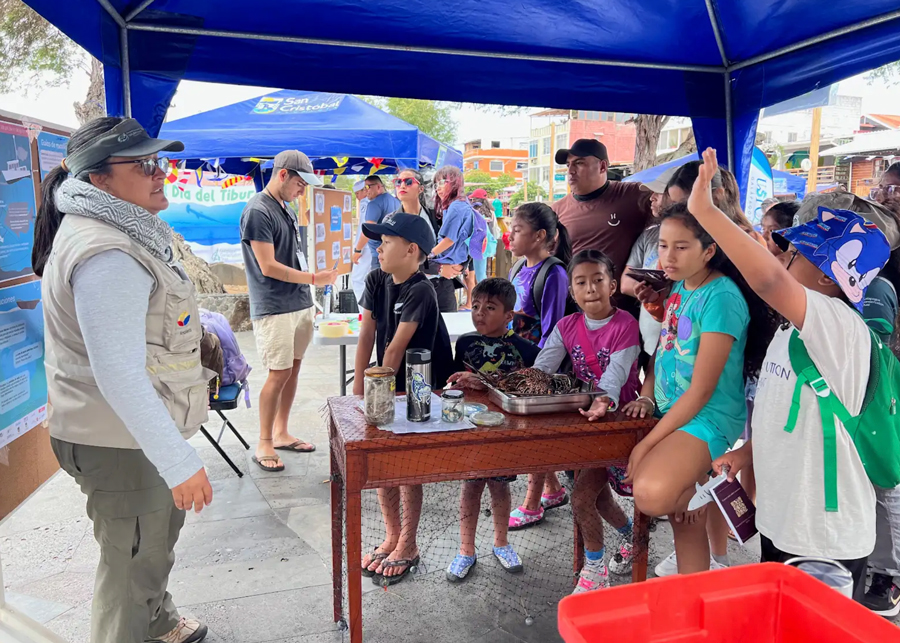
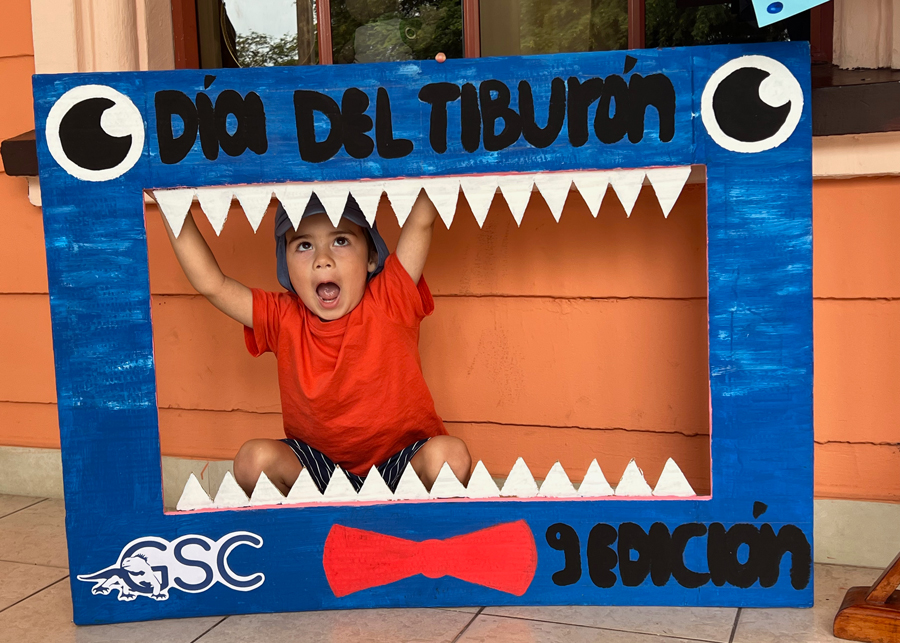

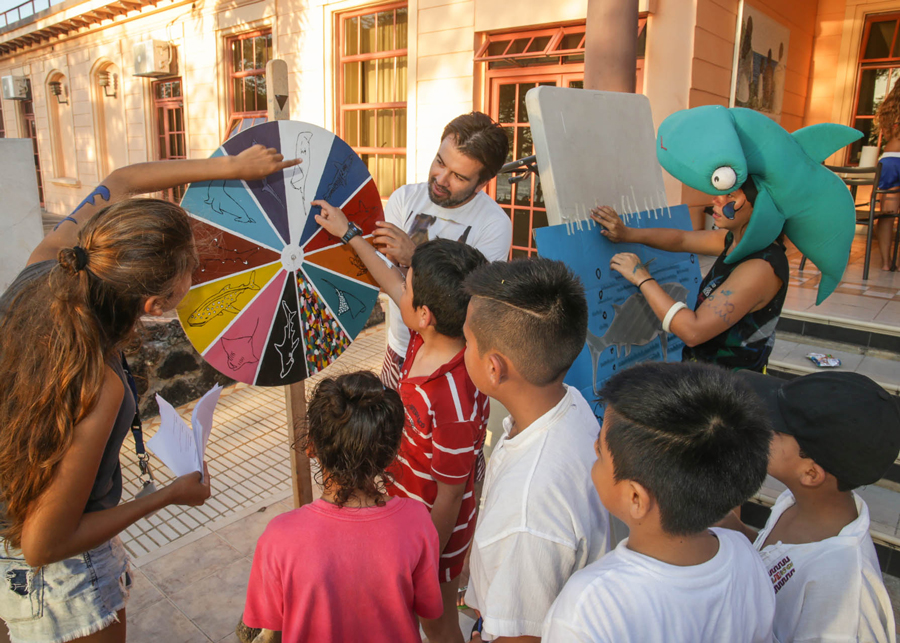


To Empower

Dragons in Action
A space specifically aimed at USFQ Galápagos students, these activities were created as an opportunity to connect them with other community members through their direct participation in the development and implementation of various activit ies of the CWNP. Participants apply knowledge acquired during their academic period in the creation of various resources that they share with children, youths, and adults during events or in local schools. Additionally, they build important skills and abilities for their personal and professional development.
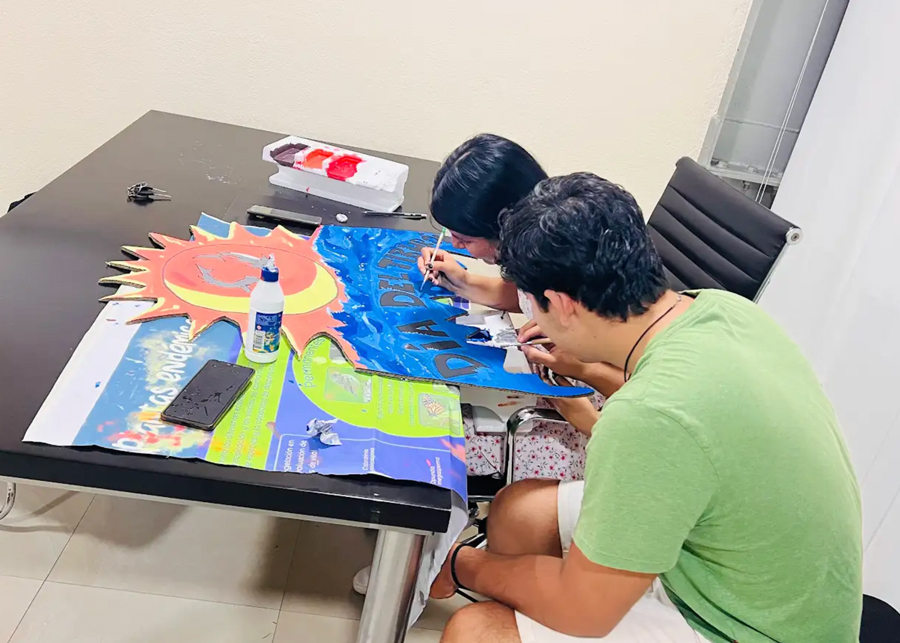
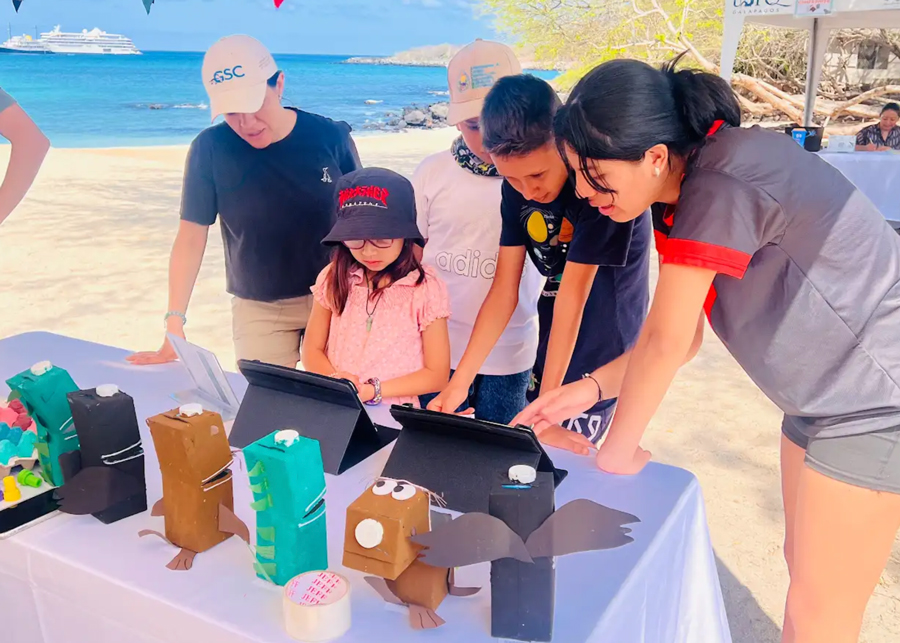

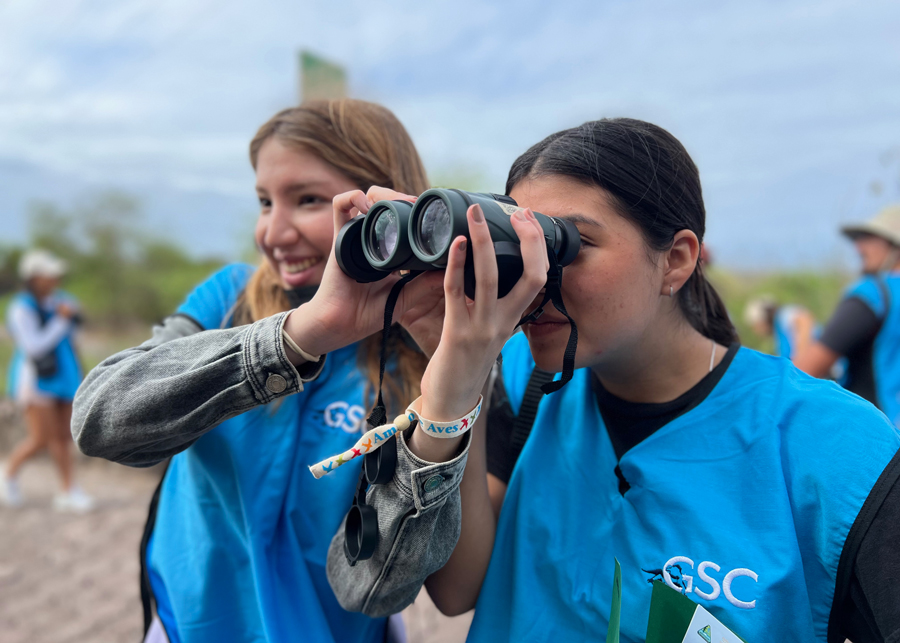
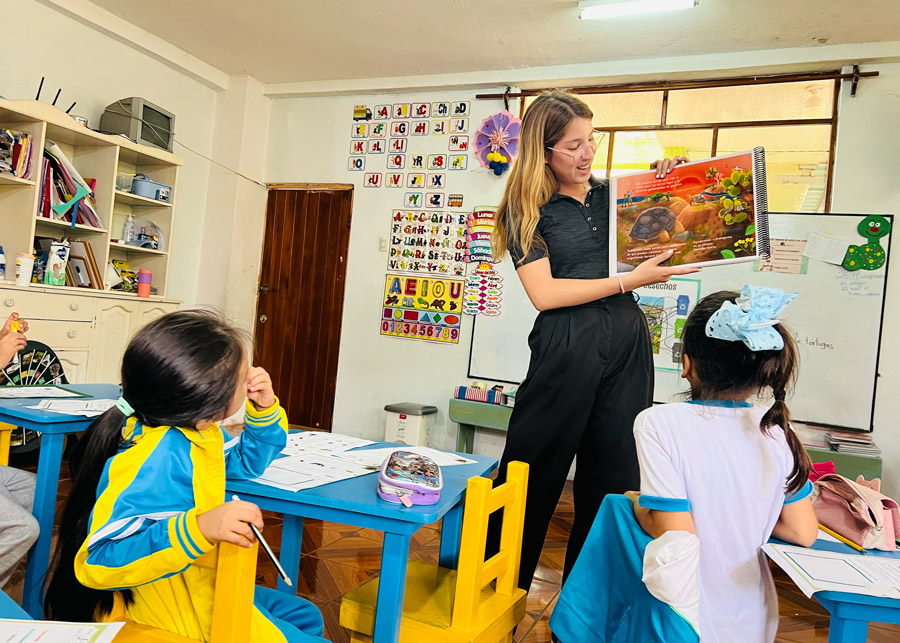
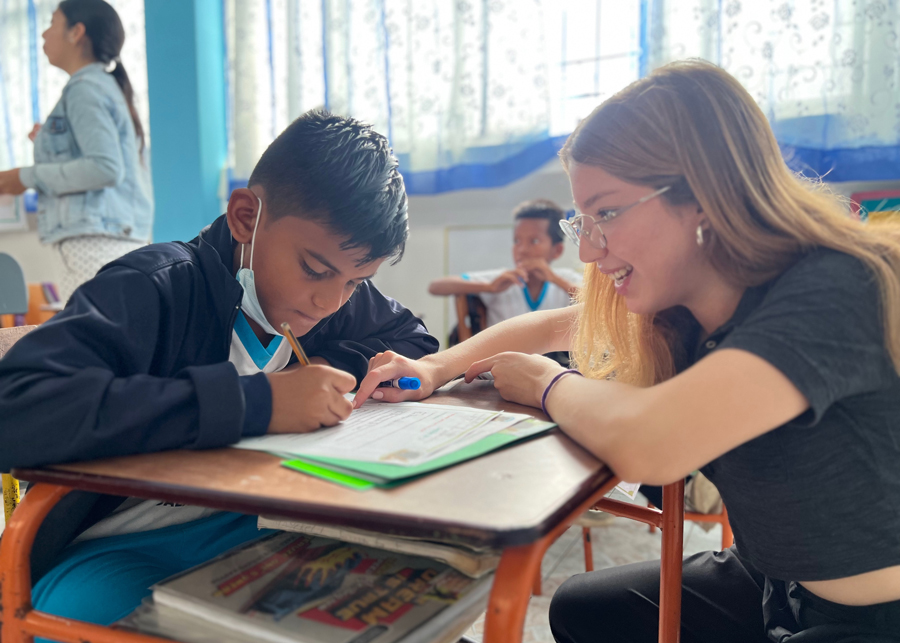
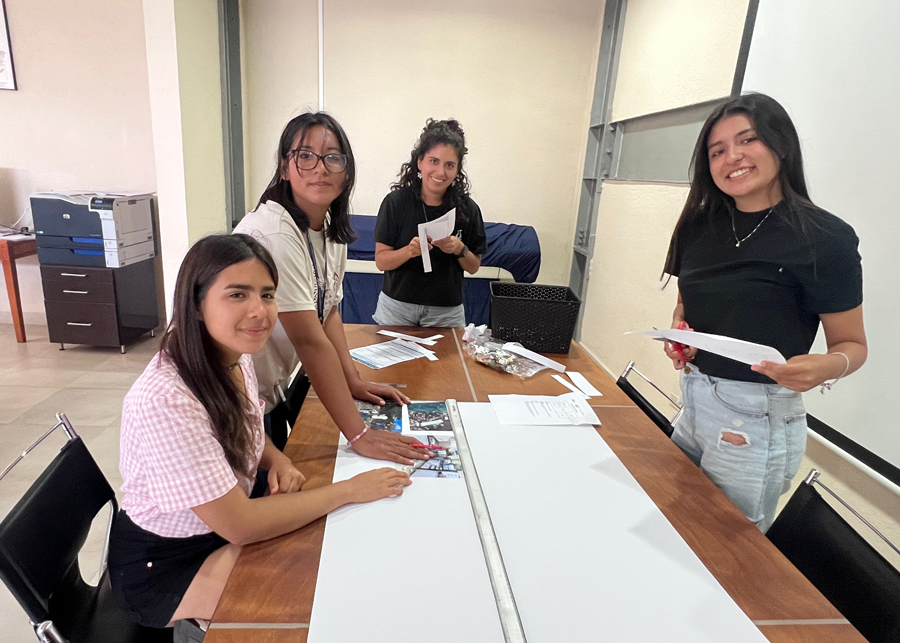

We want to inspire and reach other communities, which is why we will continue motivating our children, youth, and adults toward small positive changes that promote the protection of biodiversity and the sustainable development of Galápagos.
We thank everyone who makes it possible to continue with the activities, especially the GSC-USFQ team, who accompany us on every adventure!
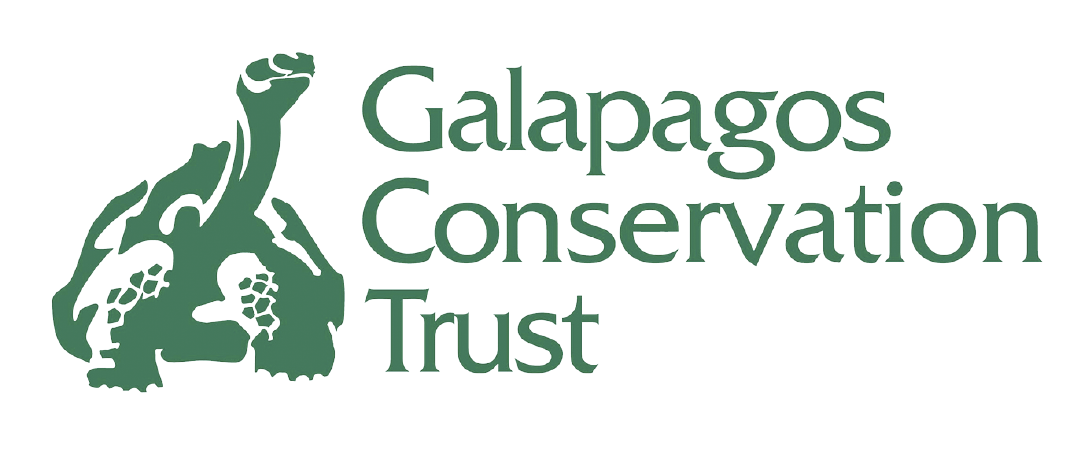
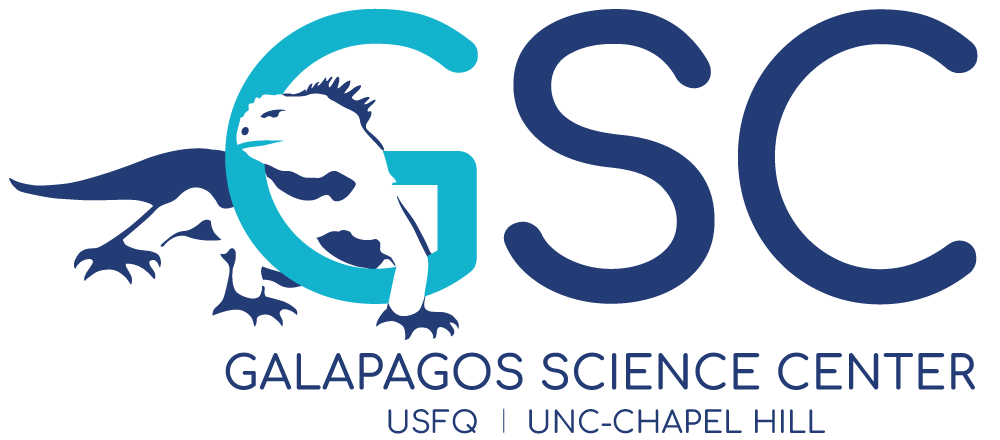
Join the ‘Connecting with Nature’ program! Click on the following video:




